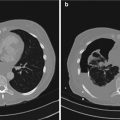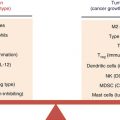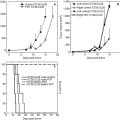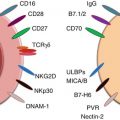1
Unique toxicities
2
Evaluation of efficacy in clinical trials and non-research settings
3
Ethical justification for initiation of treatment in individual patients
27.3 Unique Toxicities
The side effects of cytotoxic and the more recent “targeted” antineoplastic therapeutic strategies are well described and include bone marrow suppression, emesis, and cardiac, hepatic, pulmonary, renal, cutaneous, and neurological dysfunction, as well as the development of secondary malignancies.
While hypersensitivity reactions are relatively common with certain drugs (e.g., initial cycle of paclitaxel, multiple cycles of carboplatin), such events are relatively predicable within a population of patients (e.g., 10–15 % incidence of allergic reactions in patients receiving >six cumulative cycles of carboplatin) [2]. Further, these episodes are generally self-limited and are not associated with serious sequela, even if at the time they are quite anxiety provoking.
In fact, therapeutic immunological manipulations may be associated with minimal side effects (e.g., tumor vaccines), assuming a substantial degree of specificity to the biological event or at least failure to activate or inhibit processes which may produce serious secondary effects. However, the potential for unexpected, severe, and life-threatening side effects associated with immunological strategies is very real, and in the absence of a clear understanding of both the incidence and overall seriousness of short-term and long-term effects, true informed consent may be problematic. One only needs to consider the now well-understood immune-mediated toxicity of acute and chronic graft versus host disease (GVHD) observed within the domain of bone marrow/stem cell transplantation to begin to appreciate the potential impact of immunological manipulation on both the quality and quantity of life.
The uncontrolled release of potent cytokines and the accompanying impact of such events on a number of organ systems are a particular theoretical concern with novel immunological strategies previously untested in human trials [3].
As a result, until a relatively large number of human subjects have been treated with a particular immunological approach, the overall toxicity profile will remain uncertain and will mandate careful monitoring and regular updates to an ethical oversight committee responsible for insuring subject safety.
27.4 Evaluation of Efficacy in the Clinical Trial and Non-research Settings
Extensive preclinical evaluation has provided strong support for the conclusion that immunological mechanisms are most likely to be both biologically and clinically active in the presence of the smallest volume of active cancer.
Unfortunately, objectively evaluating efficacy may be problematic. If shrinkage of measurable tumor masses is not anticipated to be a likely outcome and the only acceptable measure of clinical benefit is a statistically significant improvement in overall survival in a phase III trial, this requirement will severely restrict both the types and quantity of immunotherapeutic strategies that can be moved forward for potential regulatory approval to become an acceptable “standard-of-care” therapeutic option. And when one considers the universe of possible immunological therapeutic approaches that may be clinically relevant, this concern is surely magnified by severalfold.
Further, even when such a study is conducted and completed, the result may not fit into the “standard” anticipated paradigm for a “positive trial” result, adding confusion to the research community, regulators, governmental and private payers of medical services, and patients themselves as regards the fundamental interpretation of a given trial’s outcome.
Consider, for example, the provocative phase III study of sipuleucel-T immunotherapy in the management of metastatic prostate cancer [4]. The study revealed the strategy to improve overall survival, but there was surprisingly no statistically significant effect on progression-free survival, a most unusual outcome in the realm of antineoplastic drug therapies. Whether this outcome is simply an aberration or this trial provides important insight into the nature of immunotherapeutic treatments of cancer remained unknown. Unfortunately, the absence of a definitive answer to this question makes decision making about treatment with this drug for an individual patient quite difficult.
Stay updated, free articles. Join our Telegram channel

Full access? Get Clinical Tree







